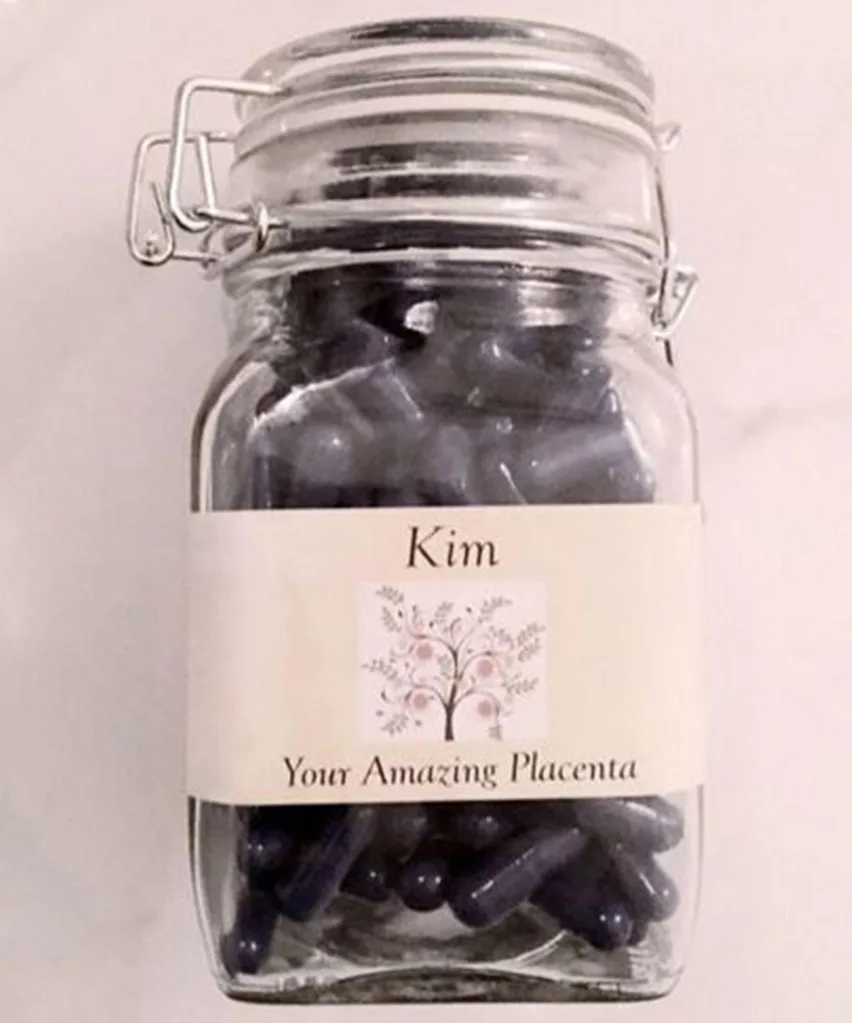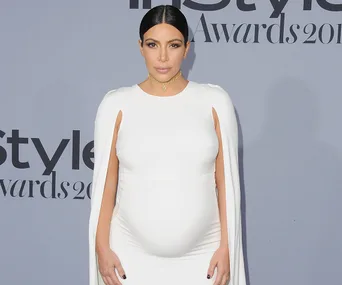It seems like everyone is eating their placenta now. Once the dietary domain of the more earthy types, since the Kardashians added it to their post-borth ritual, it’s almost become mainstream.
Zoe Marshall, wife of NRL player Benji, just gave birth a couple months ago – see the beautiful photos taken by Woman’s Day – and she’s just posted a photo on Instagram of her proudly holding a smoothie bottle containing her blended placenta.
The new mum went on to explain what she did with the placenta, and how she hoped to make use with the remaining parts of the body part.
“This is me with my placenta in a shake… a small piece of fresh placenta blended with banana and berries and yes I drank it!” she wrote, before going on to thank her birth support person, Georgie, for supplying her with the placenta so promptly. “Gotta have that fresh placenta. I also got Georgie to make me placenta capsules, a tincture and an essence to take post-natal.”
Eating the placenta is not a new idea but it is growing in popularity, particularly as more and more celebrities post their experiences and recipes. Here’s a post from mum-of-three Kourtney Kardashian, a big fan of making use of the placenta.
But the jury is well and truly out as to whether there are actually benefits.
Last year Bryony McNeil, a lecturer in Reproductive and Developmental Biology at Deakin University, told AAP that there was no evidence to support claims that eating the placenta in any form reduced the risk of postpartum depression, boosts milk supply or that it replenishes vital nutrients. She also couldn’t confirm that the practice was safe.
“The main safety concern is that we just don’t have a lot of evidence yet, there’s no clear evidence showing a benefit for eating the placenta and there are some research papers out to show potential bacterial contamination,” Ms McNeill told AAP.
Earlier in 2017, the Centers for Disease Control and Prevention (CDC) in the US issued a warning against the increasing trend in Western countries.
Indeed, researchers from Deakin University here in Oz added that the placenta could be, in fact, a source of potentially harmful toxins and bacteria.
“During pregnancy, the placenta regulates the transfer of substances between mother and baby,” Bryony McNeill, a lecturer of Reproductive and Developmental Biology at Deakin, told The Conversation.
“As such, accumulation of potentially toxic substances can occur. To date, there have been only a few small studies examining the toxicity profile of placenta capsules.”
But still that’s not stopping celebrities similar to Zoe, like Kim Kardashian-West, to press their own placenta into something edible!
“I heard so many stories when I was pregnant with North of mums who never ate their placenta with their first baby and then had post-partum depression, but then when they took the pills with their second baby, they did not suffer from depression! So I thought, why not try it? What do I have to lose?”
“I really didn’t want the baby blues and thought I can’t go wrong with taking a pill made of my own hormones – made by me, for me. I started researching and read about so many mums who felt this same way and said the overall healing process was so much easier.”

Kim’s “Amazing” placenta capsules.
What do you make of eating your own placenta? Would you do it? Tell us by commenting on our Facebook page.

